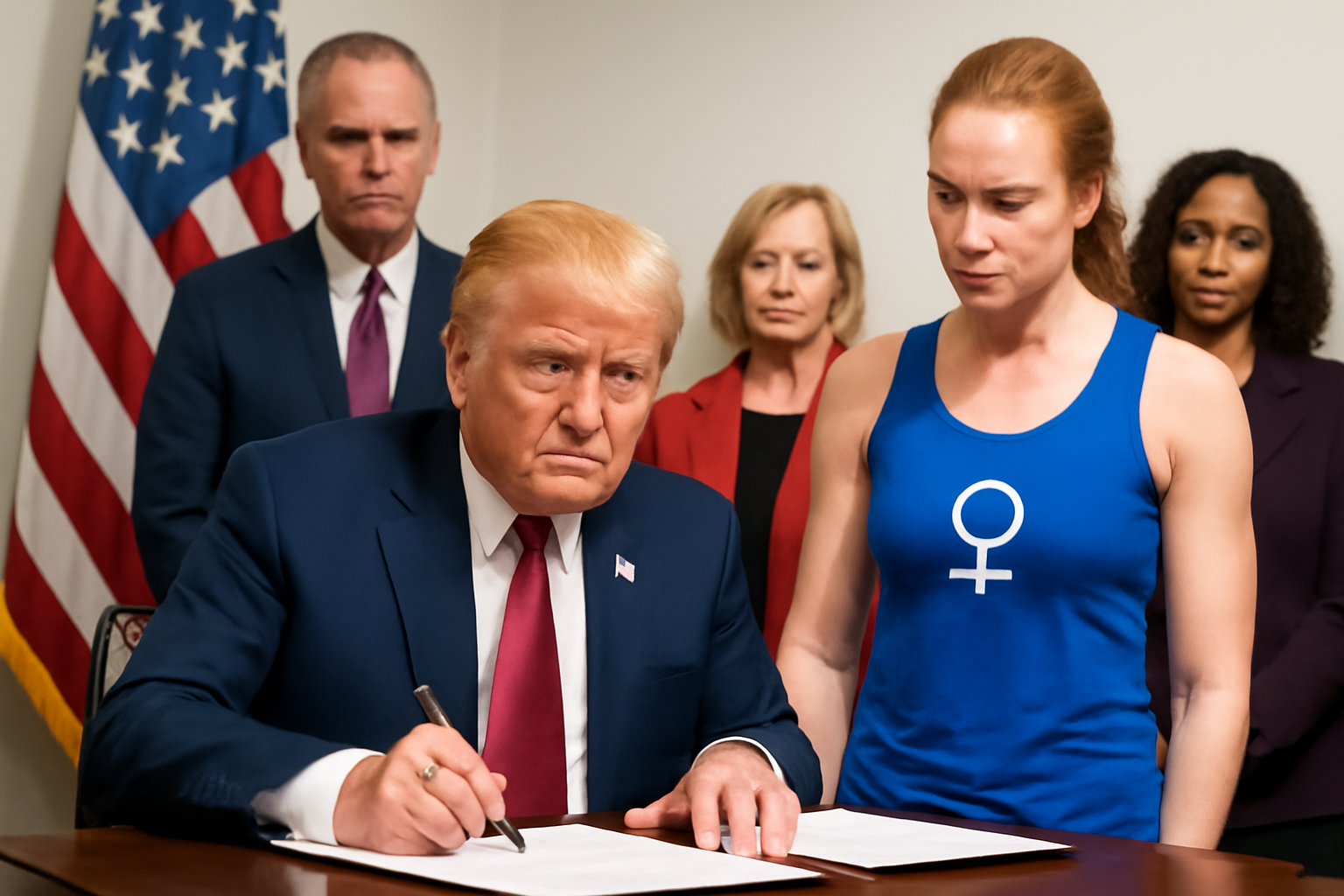
In a significant move, President Donald Trump signed an executive order on Wednesday aimed at excluding transgender women from participating in women’s sports leagues and organizations across the United States. The signing ceremony was attended by numerous athletes, politicians, and advocates who oppose the inclusion of trans women in female sports categories.
The executive order, which Trump titled "Keeping Men Out Of Women’s Sports," aims to have a wide-ranging impact, potentially influencing sports leagues beyond his immediate legal reach. At the signing, prominent figures such as Nancy Mace and Marjorie Taylor Greene, known for their anti-transgender stances, were present. Trump also acknowledged athletes Riley Gaines and Sage Steele by name.
Extending Beyond Federal Jurisdiction
While the executive order primarily targets colleges and universities that rely heavily on federal funding, it also attempts to sway professional leagues like the WNBA and NWSL. These leagues, although not directly under federal control, are encouraged to establish eligibility criteria that could exclude trans women from female categories. Trump specifically called out the International Olympic Committee (IOC), aiming to influence its policies despite its global jurisdiction.
The order instructs the Secretary of State, Marco Rubio, to pressure the IOC to amend standards for Olympic events. The goal is to define eligibility based on sex rather than gender identity or testosterone levels, under the guise of promoting fairness and safety in women’s sports. Trump’s directive signals a clear stance against the inclusion of trans women in women’s sports, potentially affecting upcoming Olympic events.
Impact on College Sports
The most immediate effects of the executive order are expected in college sports, where federal funding is a crucial resource for many institutions. In response, NCAA President Charlie Baker issued a statement indicating that the association might adopt a nationwide ban on trans women in female sports categories. Baker’s statement highlighted the executive order as a "clear, national standard," suggesting a shift in the NCAA’s policy landscape.
The order leverages Title IX, a federal civil rights law that prohibits sex-based discrimination in education programs and activities receiving federal funding. Title IX is traditionally used to ensure equal opportunities for women, but this move by the Trump administration seeks to interpret it in a way that excludes transgender women from women’s sports.
International Implications
President Trump’s order also has international implications, targeting future Olympic Games. With the Winter Olympics set to be held in Italy and potential events in New York, and the Summer Olympics scheduled for Los Angeles in 2028, Trump emphasized that his administration would deny entry visas to any trans athletes wishing to compete in female categories during the LA games.
Trans athlete and advocate Chris Mosier criticized the executive order, describing it as a misuse of Title IX to disenfranchise trans athletes. Mosier pointed out that Title IX does not explicitly address gender identity, leading to varying interpretations by advocates, politicians, and the judiciary regarding its protections.
The executive order marks a pivotal moment for trans athletes, with potential challenges and discussions expected in the coming weeks. The future of trans women in female sports categories remains uncertain, as the order could reshape the landscape of sports inclusion in the United States.
To stay informed on this developing story and other LGBTQ sports issues, consider subscribing to our newsletter for the latest updates.
Related Posts
"Wicked": Unveiling Fiyero's Destiny - Hidden Clues You May Have Overlooked
Have you ever been swept away by a story that leaves you unraveling clues long after it ends? That's exactly what "Wicked" does with its enchanting narrative, unforgettable songs, and complex characters. Among them, Fiyero stands out as a charming prince whose surprising metamorphosis by curtain fall makes us wonder: were there hints about his fate scattered throughout? Let's dig deep and see if " [...]
Triumphant Trans Woman Wins Legal Battle and Inspires Others to Stand Up for Their Rights
Breaking new ground: a landmark victory in transgender rights After battling in courtrooms and enduring endless challenges, Diana Portillo, a transgender woman, has secured a monumental victory in her decade-long fight against workplace discrimination. The result? Nearly $1 million awarded in a historic settlement. But this isn't just a win on paper—it represents a powerful precedent in combati [...]
Pride Month in Latin America: Protests and Demands for Equality
**Celebrating Pride and advocating LGBTQ+ rights in Latin America** Pride Month in Latin America was a lively mix where celebration met activism. Communities united, not just throwing a party but making a stand—demanding equality and pushing governments toward better protection and rights recognition. Throughout Latin America, pride events erupted in marches and cultural displays, each with a c [...]